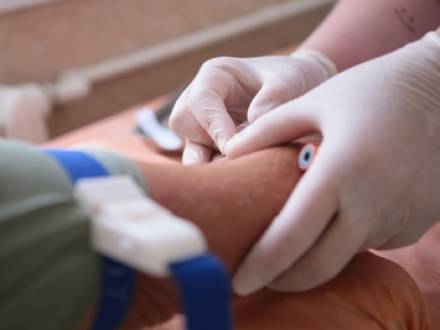
 Suppose you have been stopped for suspected DUI, and the police officer asks you to take a breath test. Under Maryland Transportation Article Section 16-205.1, anyone driving in Maryland is deemed to have consented to a chemical test (breath, blood, or urine). While you do have the right to refuse a breath test, under Maryland’s 2024 ignition interlock updates, that decision now carries much heavier consequences than before.
Suppose you have been stopped for suspected DUI, and the police officer asks you to take a breath test. Under Maryland Transportation Article Section 16-205.1, anyone driving in Maryland is deemed to have consented to a chemical test (breath, blood, or urine). While you do have the right to refuse a breath test, under Maryland’s 2024 ignition interlock updates, that decision now carries much heavier consequences than before.
The legislative changes expanded mandatory interlock device eligibility, increased license suspension periods, and reduced the discretion that drivers once had to negotiate Motor Vehicle Administration (MVA) consequences. It is essential that you fully understand how the Ignition Interlock Program interacts with test refusals before you decide whether to submit to a breath test. A Chevy Chase, MD DUI lawyer can help you determine what your penalties for refusal may be while defending your charges aggressively.
Anyone driving in the state of Maryland is deemed to have consented to chemical testing. A refusal to submit to a chemical test triggers automatic administrative penalties. These administrative penalties are separate from the criminal DUI case, and the outcome of one does not affect the outcome of the other. The police officer must read the DR-15 (Advice of Rights) form, which explains the consequences of refusing a chemical test.
Drivers who refuse a test are now often required to enroll in the Ignition Interlock Program (IIP) to regain their driving privileges. The driver’s license suspension for a first refusal was 120 days, and is now 270 days under the new law. Drivers are no longer able to "wait out" a driver’s license suspension and may be required by the MV to have an interlock device placed on the vehicle before reinstatement will be considered. The 2024 updates enable law enforcement to review interlock violation data for any repeat DUI offender. Early removal of the device, or skipped calibrations, can restart the suspension clock under the new law.
As noted, a refusal for a first offense is a license suspension for 270 days, a required ignition interlock for 12 months, and the prosecutor is allowed to argue that the refusal equals "consciousness of guilt" at the DUI trial. This is in contrast to a failed chemical test, which results in a 180-day suspension and a requirement for an IIP for six months.
A second offense refusal now results in a two-year license suspension and an IIP requirement for 36 months. Repeat offender status can trigger jail enhancements. A failed chemical test for a second DUI offense results in a 180-day driver’s license suspension and an IIP requirement for 12 months. If an individual refuses a blood draw after law enforcement has obtained a warrant, his or her driver’s license can be suspended for two years. IIP requirements will be determined on a case-by-case basis.
Many people believe that if they refuse a chemical test, then the prosecutor has no evidence against them. This is not true; officers can rely on bodycam footage, dashcam footage, and their own observations regarding impairment. It is also widely believed that having an IID is voluntary. Having an ignition interlock device placed on an offender’s vehicle is rarely voluntary and is usually mandated.
An IID may also be the only practical route to maintaining limited driving privileges, although it can be costly. The driver will pay up to $100 to have the IID installed, followed by a monthly fee of anywhere from $70 to more than $100. It is no longer practical to "wait out" a driver’s license suspension after a refusal, since nearly all refusals are now tied to an IID.
If you refused a chemical test following a DUI arrest, you will now face some of the toughest license penalties in the state’s history. A highly skilled Chevy Chase, MD criminal defense lawyer from Diamant Gerstein, LLC is ready to defend your charges. We have strong community ties and are lifelong Montgomery County residents. Call 301-560-2685 to schedule your initial attorney consultation. Se Habla Español. אנחנו מדברים עברית.
